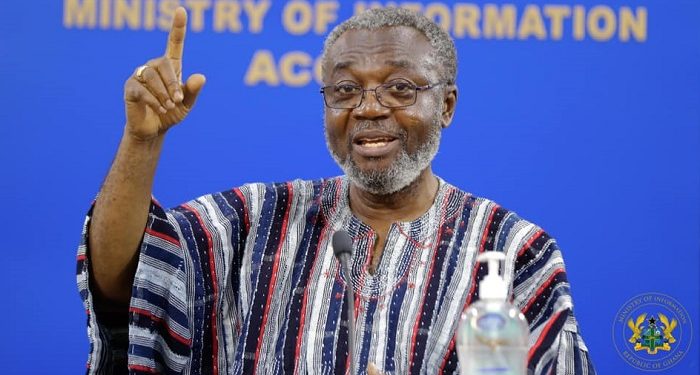Ghana’s COVID-19 case management is likely to suffer a setback due to the limited number of frontline health workers.
The Special Advisor on Health at the Presidency, Dr. Anthony Nsiah Asare on Eyewitness News said Ghana lacked enough physicians and nurses to attend to persons infected with COVID-19 across the country.
His revelation follows the confirmation of 291 new cases which pushed the country’s case count to 10,000 as of June 9, 2020.
“We do not have enough physical care physicians, we do not have enough physical care nurses. These are the two main important personnel we need for ICU care,” he said.
Dr. Nsiah-Asare, however, said more health workers will be trained and deployed to the isolation centres.
“We have medical officers who have been trained and residents who are also under training, who are all helping. Luckily, all the student nurses who are doing intensive care at Korle Bu have all been subscripted and are also working. For nurses, we can always train them on the job,” he added.
COVID-19 cases will keep increasing if we continue testing
Dr Nsiah-Asare also explained that COVID-19 cases in Ghana crossed the 10,000 mark due to enhanced tracing and testing.
He intimated that although the new figure is alarming, a consideration of both the regional and daily increases in COVID-19 figures prove that Ghana is doing well in terms of containing the virus.
“The cumulative figures will go up because even if it is 10,000 today, if you test ten people, you will get 10,010, so when we continue testing, the figures will definitely go up, but the most important thing is to look at the daily increases in the figures, that to me is the most important and we also should look at the regional increase.”
“If you look at the regional increase, which region has added any case and which region has not added any case, some of the regions for some time now are not adding any case which gives us some comfort. But I will say comfort with my teeth in my mouth because you also have to be on the guard.”
Ghana’s COVID-19 cases crossing the 10,000 mark has triggered conversations about the essence of lifting restrictions on movements in parts of the country.
Some have suggested that the easing of restrictions might have contributed to a spike in the cases.
Dr Nsiah-Asare on Eyewitness News, however, justified the decision to relax restrictions, saying it was a strategic move aimed at sustaining social and economic activities.
“If you go to other countries, they are also lifting it. We cannot lives our like that. At a stage, we had to lift it. If we keep setting restrictions, economic life will come to zero, social life will come to zero.”
Source: citinewsroom.com


